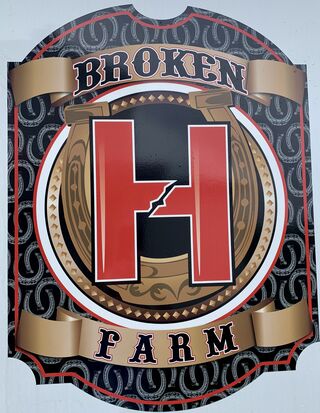Compost. Is there ever enough?
Compost. There have been literal books written on the stuff and yet it's still a mystery on how it works and what goes into it for many. If you think about it, every bit of dirt in this planet is the result of composting material over the millennials.
Composting isn't rocket science but there is a science behind it. You need the right mixture of browns (carbons), greens (nitrogen) and moisture to create heat which in turn breaks down the material into useable soil, aka compost.
Now there's hot composting which can create usable material in a month or two and cold composting which takes a long period of time. How does it work? Here's a short and dirty (pun intended) breakdown:
Hot Compost uses oxygen requiring lmicroorganisms to create heat which breaks down matter. You need a 1:1 ratio of carbon vs nitrogen and a big pile. At least 3'x3'x3' and around 50% moisture to get it to work. You've got to turn it periodically too to keep introducing oxygen though out.
Cold Compost doesn't use heat and basically ferments the material to break it down. It doesn't need to be a big pile, you can add to it as you go, you don't need to worry as much about the Carbon to Nitrogen ratio, and you don't need to turn it. The downside is it can take a year or so to be ready, it doesn't kill weed seeds and it can smell.
So what do I use here? Sort of something inbetween. I don't always have enough to create a big pile all at once but I typically have plenty of carbon and nitrogen material to have a proper mix and get heat. I like to build a pile in the chicken yard, which I've talked on before and use chicken power to do the turning. That's worked out well enough but it is more work to get it to the garden. Recently I was given 12 contractor size bags of grass clippings from untreated yards, which I promptly started mixing with horse, goat and chicken manure mixed with sawdust. Toss in some spent brewery grains which molded before they could be fed, extra comfrey stalks to help kick start it and game on. I built this pile in a low spot in the yard next to the garden, so it can be turned with the kubota tractor and be easily accessible. It's breaking down nicely and has good heat.
I don't like to use commercial fertilizers so I rely on compost and comfrey tea to keep my garden producing. Each spring I'm topping off the raised beds. Every serious gardener should have a compost pile in the corner of the garden. This sustainable practice can help reduce outside inputs being needed and help secure food security.
Until next time, stay busy, stay focused and start composting!
p.s. If could jump over to the new Store page to check it out I'd appreciate it! Lots of new offerings from the farmstead.


